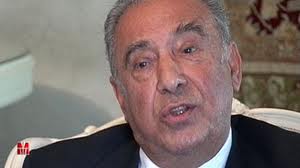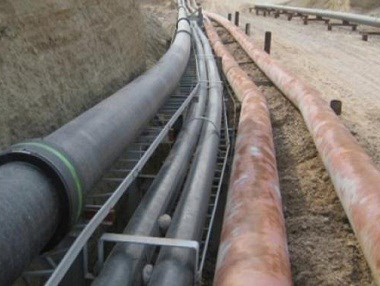Over eleven months have passed since the signing of the oil contracts between the Federal Ministry of Oil in Baghdad and the International oil companies (IOCs) resulting from the first and second bid rounds. However, to this date none of these contracts have been publicly released or published in any foreign language. Amazingly, all the contracts are written in English and none of them have even been translated into Arabic by the oil ministry in Baghdad, for the Iraqi people or even their representatives in the Federal parliament in Baghdad to look at and to see how their future is going to be shaped.
I have now obtained access to some of the contracts. My sources have specified that I cannot publish them in full, but I can discuss several aspects of them, which I shall do here.
My analyses will not cover the consequences of these contracts for the future of the Iraqi oil and gas industries or the future relations between Iraq and OPEC and its effect on international oil prices, as I already have covered these important topics in my previous articles [see sources 1 & 2].
I will only examine two aspects of the contracts here: article 12 — Approval of developments, plans and work programs and article 37 — Governing law, conciliation and arbitration.
It should be noted that the contracts awarded so far will cover about 60% of Iraq’s proven oil reserves [3]. These are standard contracts with the seven IOCs that will benefit from the 1st bid round (BP/CNPC, which have been awarded the 17.8 billion barrels [BB] Rumaila oil field; Eni/Occidental/Kogas awarded the 4 BB [updated estimation puts it at 6.5BB] Zubair oil field; and Exxon Mobil/Shell awarded the 8.7 BB West Qurna-1) and the nine IOCs in the 2nd bid round, including Shell/Petronas who were awarded the 12.6 BB Majnoon field; Lukoil/Statoil awarded the 13 BB West Qurna-2; and CNPC/Total/Petronas awarded the 4 BB Halfaya field.
Article 12 — Approval of developments plans and work programs,
I will examine both the “Technical Service Contracts” (TSCs) signed between the South Oil Company of the Republic of Iraq (SOC) or the North Oil Company (NOC) with all the awarded contractors in the 1st Bid Round, and the “Development and Production Service Contracts” (DPSCs) signed with all awarded contractors in the 2nd Bid Round.
Article 12.2(e) states “If line items of an annual work program or budget remain unresolved after submission to senior management the parties agree that the operator will be authorised to act as though the most recent submission by the Contractor has been approved until such time as final resolution of disputed items has occurred.”
This will allow the contractor to put forward major claims and the SOC/NOC will then have to pay for the time period that the claim stays unresolved and such claims could take years through international courts to be concluded.
Article 12.5 in the 1st bid round contracts and article 12.6 in the 2nd bid round contracts reveals that the “Contractors” will be fully compensated if the SOC/NOC should require contractor and operator to increase or decrease the rate of production from the contract area when it states: “During the periods when the rate of production is decreased, production curtailment imposed under article 12.5(e) or article 12.5(f), the remuneration fee bid adjustment under article 19.5(e) shall cease to apply and immediately after such SOC [or NOC] notice and the parties shall agree in good faith a mechanism to fully compensate contractors as soon as practicable, which may include, among other things a revised field production schedule or an extension to the term or payment of the lost income to contractor in respect of the estimated volumes not produced during the period for which the production levels are curtailed under article 12.5(e) or article 12.5(f).”
Where the justification 12.5(e & f) as stated in the contracts are:
12.5(e) For Government-imposed curtailment.
12.5(f) For curtailments due to failure of Transporter to receive net production at the transfer point “through no fault of contractor or operator.”
This clearly specifies that if Iraq was instructed by any regular future OPEC production adjustments decision to reduce production in order to keep the price of oil in the international oil market at a reasonable level, then in accordance with article 12.5(e), the Iraqi Ministry of Oil will compensate the contractors for the quantity of oil that they do not produce, which will represent a penalty on the Iraqi people, while the IOCs will receive profits for doing nothing.
In addition, Iraq will pay the IOCs more money for not producing oil in accordance with article 12.5(f), as the majority of Iraqi oil experts are signifying in their studies that the Iraqi oil transporting infrastructure for transporting oil from the IOCs’ transfer points to the main oil sea terminals in the Arabian/Persian Gulf or through oil transporting pipelines to new sea terminals in the Mediterranean are so inadequate that they can not see how Iraq will be able within the next 6 to 7 years, to increase its upstream and downstream transporting facilities from the existing capacity of 2.5 million barrels per day (bpd) to 10 to 12 million bpd while the Federal Ministry of Oil was unable in the past 8 years to even keep the transporting capacity at the 2.5 million bpd level.
Article 12.5 further states: “In case reduction of production of crude oil is applied as per article 12.5(e), SOC/NOC shall apply such reduction in a non-discriminatory manner to all of its Affiliates’ production from the Republic of Iraq.”
This is another big restriction on Iraq’s economy and sovereignty, as it is very likely that for economic reasons oil production from certain fields will be reduced, whilst production is kept to its maximum capacity in other fields.
Article 37 — Governing law, conciliation and arbitration
Article 37.4 will allow foreign commercial courts to decide the future of the Iraqi people — the Iraqi people will have no say when it comes to their national interests, as the Iraqi laws will not even be considered. This section states “All Disputes arising out of or in connection with this Contract, other than those Disputes that have been finally settled by reference to either senior management or Expert, shall be finally settled under the Rules of Arbitration of the International Chamber of Commerce by three arbitrators appointed in accordance with the said Rules.”
Article 37.5 specifies the seat of arbitration is to be Paris, France. It is been established from past experience that this Paris arbitration will only recognize contracts as being accepted as commercial contracts and does not acknowledge any sovereign rights in their judgments.
Article 37.6 states “The language of arbitration shall be the English language. The award of arbitration shall be in English and shall be final and binding on the Parties to the Dispute. Judgment on the award rendered may be entered and enforced in any court having jurisdiction in recognition and enforcement thereof. Any right to appeal or challenge any arbitral decision or award, or to oppose enforcement of any such decision or award before a court or any governmental authority is hereby waived by the Parties except with respect to the limited grounds for modification or non-enforcement provided by the applicable arbitration Rules.”
It should be noted that all the contracts are for twenty years and contain provisions to extend them for an additional five years, thus, enabling the IOCs to control Iraq’s economy and therefore its independence and sovereignty for 20-25 years. In this clause, the Federal oil ministry which is not an elected organization, has taken the decision on behalf of all the Iraqi people to waive their rights to any future modifications to the contracts even if Iraq’s future economic independence necessitated such modifications.[4]
Conclusions
1. Articles 12 and 37 explain the reasons for the secrecy surrounding the 1st and 2nd bid round oil contracts and the lack of real transparency by the Federal Ministry in Baghdad. Not only have the contracts not been made public, but they have not even been translated into Arabic, which should make every Iraqi suspicious of the motives behind all the secrecy covering the contracts to this date.
2. Article 12 shows that the margin of profits which were agreed on officially with the IOCs’ contractors does not represent the only profit that the IOCs will receive from the Iraqi Ministry of Oil, as the Ministry of Oil will compensate the contractors for the quantity of oil that they do not produce, which will in itself represent a penalty on the Iraqi people, whilst the IOC will receive additional profits for doing nothing.
3. Article 37 is a very significant article in terms of setting up the economic future of the Iraqi people and their future sovereignty. Therefore it is not wise to leave these vital decisions in the hands of bureaucrats in the Ministry of Oil or, for that matter, in the hands of a very weak government, without allowing the Iraqi people to have their say on their future by ensuring that such laws can only turn into lawful contracts if they are at least passed by an elected parliament, as required by existing Law number 97 dated 1967 which is still in force, or by a public referendum.
4. There are some analysts who believe that the US oil companies lost out from the awarded contracts, since only two of them, Exxon Mobil and Occidental have been awarded contracts. In my judgment this was not the case, as today what we call the International Oil Companies are really no longer national oil companies operating in the international market, as was the case up to the 1970s. In today’s market, what we call IOCs are in fact multinational oil companies (MOC), owned by the multinational financial institutions (mostly US), with share holders from around the globe, and not by one nation’s share holders. It is more likely today that the external size of operations and profits of theses companies comes from projects from all over the globe rather than from one nation, as shown by the cases of BP, Shell and most others including CNPC.
5. The contracts awarded in the 1st and 2nd bid rounds confirm that the US occupation of Iraq which started in 2003 did achieve some of its targets. In particular the occupation succeeded in ensuring that the future control of Iraqi oil stayed in the hands of the multinational oil companies and not in the hands of the Iraqi people and their legislative body.
Sources
1. Munir Chalabi, “Iraqi Oil: The influence of the 1st Bid Round on the Future of Iraq‘s National Oil and Gas industries,“ ZNet, July 16, 2009.
2. Munir Chalabi, “Iraqi Oil: Are the 1st and 2nd Bid Rounds Part of A Wise Resource Development Strategy Or Could They Turn Out To Be Steps in the Wilderness?“ ZNet, Nov. 14, 2009.
3. Ahmed Mousa Jiyad, “Iraqi Oil Fields Development: Profiles Of Production, Depletion And Revenue,“ Middle East Economic Survey, Dec. 22, 2010.
4. Thomas W. Donovan, Esq., “Iraq‘s Upstream Oil and Gas Industry: A Post-Election Analysis,“ Middle East Policy Council, 2011.
Munir Chalabi’s ZSpace Page, Sunday, April 24, 2011








Comment here